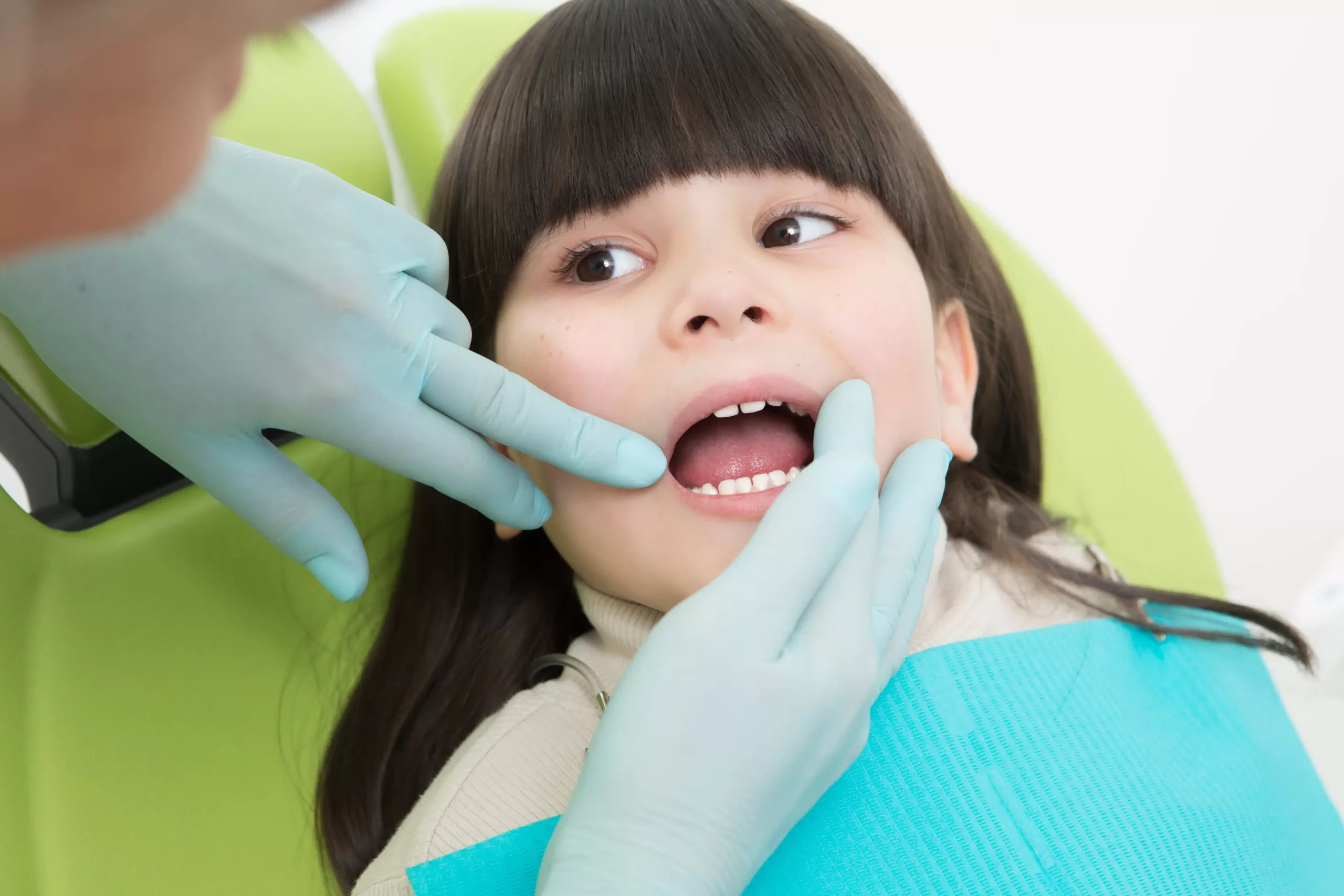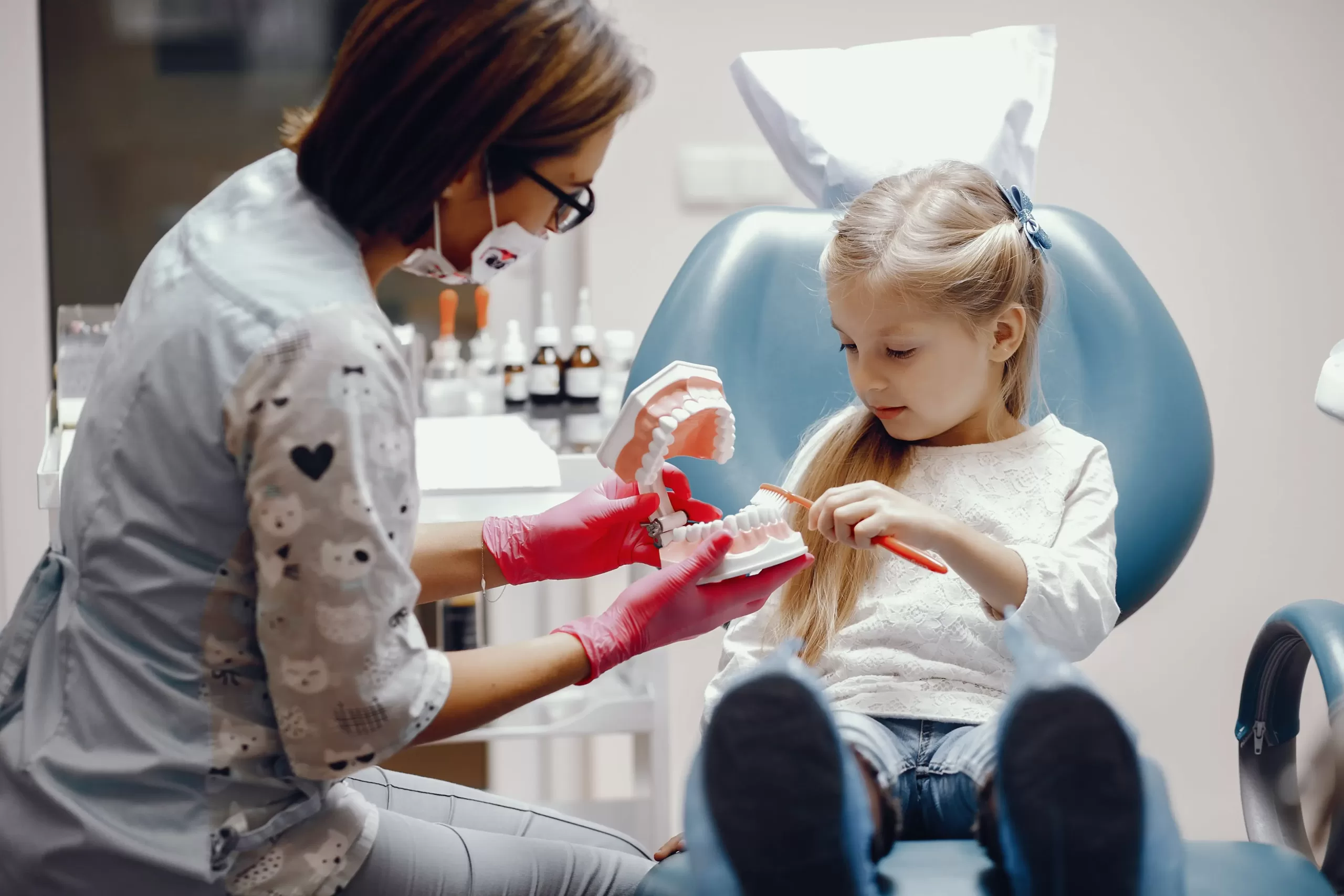Pedodontics – Child Dental Health
Pedodontics, or pediatric dentistry, is a field dedicated to understanding the needs of this special period and treating them in the most effective way.
PEDODONTICS – CHILD DENTAL HEALTH
Children’s dental health has special needs that are different from those of adults, and these needs have a direct impact on their overall health. During this critical period from infancy to adolescence, establishing positive habits for dental and gum health protects against many dental problems that an individual may encounter in later life. Pedodontics, or pediatric dentistry, is a field dedicated to understanding the needs of this special period and treating them in the most effective way.
What is Pedodontics? What Does Pediatric Dentistry Look For?
It would be very correct to start with the answer to the question of what pedodontics means. Dental development in children begins with the eruption of the first milk teeth in infancy and continues until adolescence. Pedodontics deals with issues such as the prevention of dental caries in children, the healthy eruption of milk teeth, the proper eruption of permanent teeth and the proper development of the jaw structure.
What does pedodontics look at? What does pedodontics do? The answer to these questions is not only about dental health. It also aims to make the treatment process more comfortable by minimizing the fear and anxiety that children may experience during dental treatment. Each child’s oral structure and tooth development rate are different, but in general, there are some critical stages that should be considered in this process. For example, factors such as whether the child’s teeth are crowded, crowded or cavities, and whether the jaw structure is developing properly are closely monitored by pedodontic specialists.
Who is a Pedodontist? What Does a Pedodontist Do?
What is a pedodontist? After completing basic dentistry training, a dentist can apply to join a pedodontic specialty program. This program usually covers a period of time ranging from 3-4 years.
Pedodontists, also known as pedodontic doctor, pedodontic specialist, are dentists specifically focused on the dental health of children aged 0-14 years. First of all, they monitor the development of children’s milk teeth and the general health of these teeth. In this period, if tooth decays are detected and treated at an early stage, the transition to permanent teeth is much healthier.
Deciduous teeth take the place of permanent teeth and their correct position helps the permanent teeth to erupt in the right place. For this reason, in case of early loss of deciduous teeth, pedodontists use placeholder applications to prevent other teeth from slipping into this space.
Dental trauma is common in childhood. Teeth can be damaged by falls, blows or accidents. The pedodontist specializes in the treatment of such post-traumatic teeth. They treat teeth that are broken, displaced or completely lost.
In addition, common habits in children can negatively affect the tooth and jaw structure. For example; they detect and intervene early in the problems that may be caused by habits such as finger sucking, tongue pushing, cheek biting.
A child’s first visit to the dentist should usually be around the age of one year. This visit is important for familiarizing the child with the dentist and detecting early dental problems. Pedodontists make recommendations for both the family and the child during this first visit, laying the foundations for a healthy mouth and dental structure.
Pedodontics focuses not only on the treatment of existing dental problems, but also on preventive practices used to prevent potential dental problems. The aim of these applications is to keep children’s oral and dental health at an optimum level and this ensures more successful results when started at an early age.
Preventive practices that we also apply in our clinic;
Fluoride Application
Applying fluoride gel or varnish to teeth to reduce the risk of tooth decay.
Fissure Sealers
They are protective plastic coatings usually applied to the chewing surfaces of molars to reduce the risk of caries formation.
Finally, they create treatment plans taking into account the child’s psychological state. They use special techniques and approaches to help children overcome their fear of the dentist, so that the treatment process is much more comfortable for the child.
What Does Pediatric Dentistry Look For?
Pediatric dentistry is a specialty that focuses on the oral and dental health of children who are in the transition from baby teeth to permanent teeth. Specialists in this field have in-depth knowledge of the specific characteristics and needs of children’s dental structure, growth and development. The most common dental problems in children include cavities, dental trauma, early loss of primary teeth and orthodontic problems. Early dental treatment allows such problems to be detected early and necessary precautions to be taken. Early treatment offers the advantage of solving problems without the need for more complex and costly treatments. In addition, familiarizing children with the dentist at an early age can prevent them from experiencing fear of the dentist later in life and increase their awareness of oral hygiene. Therefore, pediatric dentistry contributes to a child’s overall oral and dental health, both physically and psychologically.
Why is Pedodontist and Child Communication Important?
Pedodontists stand out not only for their medical knowledge of children’s dental health, but also for their positive communication with children. Children may have a fear of the dentist or have concerns about the treatment process. At this point, the pedodontist’s communication with the child plays a critical role. It is essential to reduce the fear of the child, to use a simple and understandable language to help the child understand the treatment processes, and to gain the child’s trust with methods such as show-tell-do and storytelling. Designing the clinic environment as child-friendly contributes to reinforcing this trust. In our clinic, there is a special area where children can play. This area reduces children’s stress before and after treatment and makes visiting the dentist a positive experience. A child-friendly environment and expert communication techniques help children form positive perceptions of dental health and maintain these habits in later years.
What to Consider When Choosing a Pediatric Pedodontics Clinic in Istanbul
Pedodontics is a field that continues to develop in parallel with the growth of Istanbul’s population and increasing health awareness. Thanks to this, Istanbul offers many options in terms of pedodontic clinic and pedodontist. So what should be considered when choosing a pedodontist? First of all, the education level, experience and communication skills of the clinic’s expert staff with children are important. The child-pedodontist relationship is a bridge of trust that affects the treatment process. A good pedodontist should be able to communicate effectively with children, understand their fears and take approaches to reduce these fears. It is also of great importance that the physical environment of the clinic is child-friendly. Having areas where children can relax, especially in waiting areas, can help them have a more positive start to treatment and reduce their stress before and after treatment. It is also important to consider whether the clinic complies with hygiene standards and whether the equipment used is modern and up-to-date. Another important factor is the feedback the clinic has received from previous patients. The comments and recommendations of satisfied patients can guide you in choosing a clinic. Finally, the location of the clinic, ease of transportation and flexibility of appointments are also important considerations when choosing. As Eliz Diş, we combine the advantage of being located in a central location in Istanbul with easy accessibility and an environment where we prioritize the comfort of children.
The Process and Importance of Shedding Milk Teeth
Milk teeth play an important role in a child’s development and the process of their eruption represents a critical period for the child’s oral health. There is no clear answer to the question of when milk teeth fall out. In this process, which usually starts at the age of 6-7 and continues until the age of 12, deciduous teeth are replaced by permanent teeth. It is not known when deciduous teeth fall out, but premature loss of deciduous teeth due to reasons such as decay or trauma can lead to improper positioning of permanent teeth or problems in jaw development. For this reason, it is of great importance to protect the health of milk teeth and to lose them at the right time. In addition, deciduous teeth contribute to the development of the child’s ability to speak, proper nutrition and the formation of an aesthetic smile. During this process, regular check-ups and recommendations from the dentist are the cornerstones of your child’s oral health, both now and in the future.
Tips for Children’s Dental Health
Protecting children’s dental health means giving them a lifelong habit. In this process, daily care routines are of great importance. Here are some basic tips for children’s dental health:
Early Start
In infants, even before the first tooth appears, it is recommended to clean the baby’s mouth with a soft cloth. When the first teeth appear, it is necessary to start brushing immediately.
Choosing the Right Brush
You should choose a soft-bristled and ergonomic toothbrush for your child. The brush size should be suitable for the child’s mouth.
Brushing Technique
It is important to brush gently to prevent damage to the enamel and gums. Teach your child to make angled movements from the gum to the tooth when brushing, rather than horizontally.
Fluoride Toothpaste
Fluoride toothpastes specially produced for children help prevent tooth decay. However, it is important to pay attention to the amount of paste; for children under 3 years of age, a grain of rice-sized paste should be used, and for children over 3 years of age, a pea-sized paste should be used.
Regular Visits to the Dentist
You should consult a dentist at least twice a year to closely monitor your child’s dental development and intervene early in case of potential problems.
Limited Sugar Consumption
Sugary foods and drinks are the main cause of tooth decay. Limit the consumption of such products and teach your child to rinse their mouth with water after eating something sugary.
Water Consumption
Drinking plenty of water removes bacterial plaque and keeps the pH of the mouth balanced.
By paying attention to these tips, you can protect your child’s dental health and give them a healthy smile.
Cost of Pedodontic Services: Pedodontic Prices and Variables
The cost of pedodontic services can vary depending on many variables. The type of treatment, the complexity of the procedures, the quality of the materials used, and the location of the clinic are among the main factors that affect pedodontic prices. In addition, the experience and training of the specialist can also play a role in pricing. Generally, simple preventive measures and cleaning are more cost-effective, while specialized procedures and surgical procedures can increase the cost. To get the most accurate price information, it would be the healthiest method to contact our clinic and get a price quote after a detailed examination.



